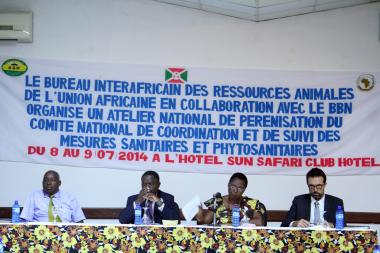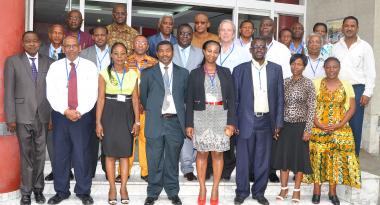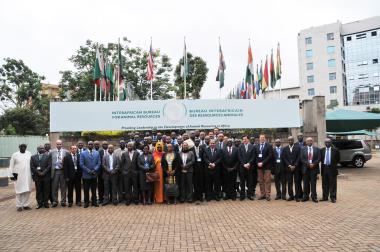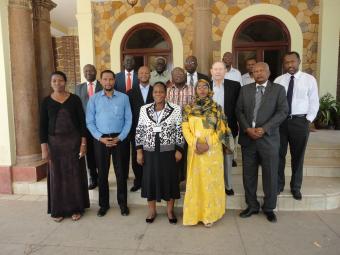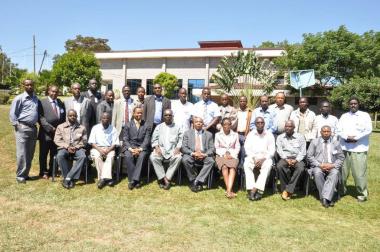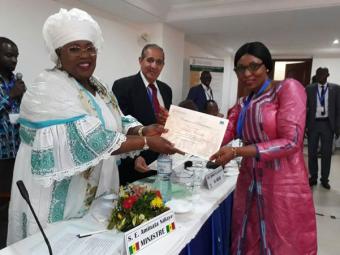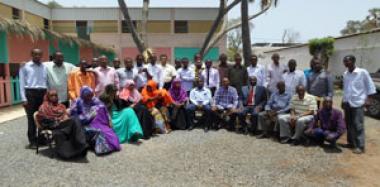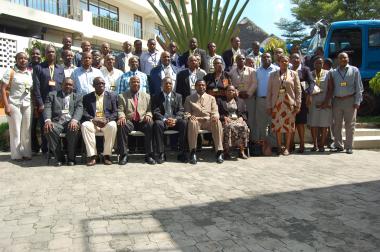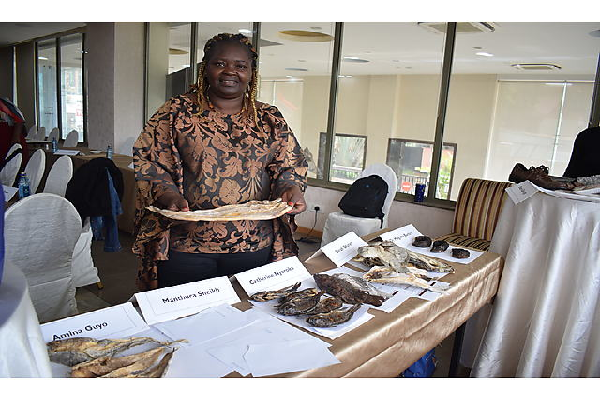
Fish and fishery products play a pivotal role in global trade, but women-owned small and medium enterprises (SMEs) in this sector face significant challenges accessing regional markets. These obstacles, compounded by quality issues, including subpar management and hygiene practices, hinder their progress. Many women entrepreneurs lack the infrastructure needed to meet food safety standards. To address these issues, the African Union's Interafrican Bureau for Animal Resources (AU-IBAR), in collaboration with the African Union Development Agency (AUDA-NEPAD), through the EU-funded Fisheries Governance Programme, is hosting a Training of Trainers workshop in Abidjan, Cote D’Ivoire, from September 19-22, 2023.
This event, expertly facilitated by the African Union Center of Excellence, L’Académie Régionale des Sciences et Techniques de la Mer (ARSTM), aims to empower members of the African Women Fish Processors and Traders Network (AWFISHNET) with essential skills in fish value addition and marketing strategies. The comprehensive training covers fish technology, marketing strategies, environmental hazard management, regulatory compliance, case studies, and sustainable fisheries certification. By enhancing the capabilities of women in the fisheries sector, this initiative not only boosts economic growth but also strengthens food security across Africa. Participants include selected AWFISHNET members from French-speaking African countries, experts, facilitators, and personnel from ARSTM and AU-IBAR.
Addressing Challenges through Collaboration and Commitment
In response to a litany of challenges, including limited access to credit, low literacy levels, weak organizational structures, and inadequate resource management, women in the fisheries sector took a significant step forward. In 2017, AWFISHNET was established with the goal of fostering collaboration among women fish processor and trader associations across the continent. AWFISHNET's mission encompasses sharing best practices, advocating for women's issues, and creating an enabling policy environment. Moreover, it seeks to attract public and private investments in fish post-harvest activities, strengthen the roles of women as Small and Medium Enterprises (SMEs), and expand market opportunities, ultimately enhancing intra-regional African fish trade.
Leadership Commitments and Sustainable Development
The commitment of African leaders to initiatives like AWFISHNET, as underscored by the Malabo declaration, emphasizes the pivotal roles of women and youth in achieving goals such as boosting intra-African trade, reducing poverty, and promoting inclusive agricultural growth and transformation. These commitments align harmoniously with the principles and strategic objectives of the Policy Framework and Reform Strategy for Fisheries and Aquaculture in Africa (PFRS), which places a premium on strengthening the roles of women and youth in the fisheries sector. Through these coordinated efforts, women in African fisheries and aquaculture are progressively gaining the recognition, support, and opportunities they deserve. In doing so, they are making invaluable contributions to the sustainable development of the continent.
As the ToT workshop unfolds in Abidjan, the spotlight is firmly on empowering women in the fisheries sector, ultimately enhancing their skills, market access, and contribution to the economic and food security landscape of Africa. With science, innovation, and collaboration at the forefront, these empowered women are poised to drive positive change, ensuring a brighter future for themselves and the continent as a whole.
Picture Above: @AU-IBAR - Launch of AWFISHNET Kenya

